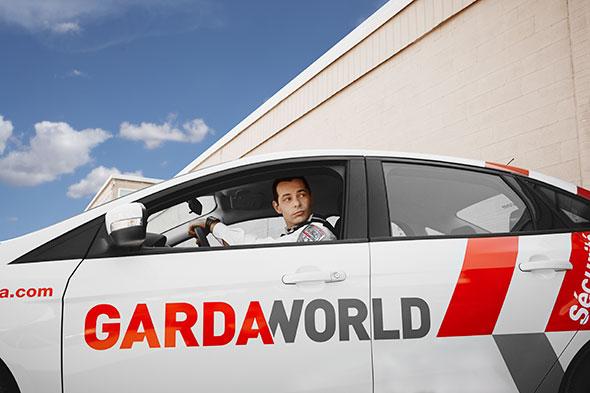
Note: this blog post was written with the help of Pierre François Hervieux, GardaWorld Protective Services Senior Account Manager
Video surveillance, perimeter sensors and guards in fixed positions are static, and can only do so much. Many business, institutional, and even residential environments require mobile security patrols as a key part of a comprehensive security plan and as a complement to community policing and public safety personnel. Emergencies, by their nature, need quick responses, and that requires trained and flexible response officers to be on the move. While public safety resources may be available, often they cannot respond as fast as private, mobile security patrols.
Containing risk. Examples of places that can take advantage of mobile security patrols include large corporate and university campuses as well as residential communities. These, in turn, typically have a wide range of structures and facilities, like office and classroom buildings with people coming and going, parking garages, roadways leading to public streets, and even athletic facilities like pools, tennis courts and golf courses. Other areas that require mobile security patrols include mines and oil fields, industrial properties, transportation depots, hospitals and medical complexes, construction sites, and shopping centers.
All need watchful eyes to be alert to people endangering themselves or others as well as vandalism and property damage due to fire or weather. In doing so, mobile security patrols can also help reduce a property owner’s risk profile by containing its exposure to legal liabilities associated with property damage or with people getting hurt. This can also help lower liability insurance costs.
High visibility and frequency. Mobile security patrol services can provide two key security advantages over local police:
-
They’re much more familiar with their patrol routes around and through the facilities and spaces they’ve been hired to watch. With great situational awareness, they can spot irregularities that are amiss much sooner and can serve as a fast deterrent to potential offenders.
-
They are likely to patrol their contracted environments much more frequently than community vehicle police patrols, so their operational presence is much greater. It also can put them much closer to an issue arising if and when it occurs, whether it’s criminal or not.
Evaluating providers. While professional mobile security patrols can be cost-effective ways to fill the gaps between elements of a total physical security program, it’s important to hire the right company to provide those services. Here are some criteria to consider:
-
Officer recruitment and screening: You want to ensure that your patrols are staffed by people who have no criminal records and have a genuine interest in their work. Background investigations are conducted to filter out potential candidates with criminal records. And at GardaWorld, our pre-screening process also filters out those who are only looking for a job “that pays the bills.” Experience has taught us that employees with that type of mindset don’t stay within the ranks very long. Instead we carefully select those with a sense of ownership, intelligence, good judgment and people skills.
-
Officer training and development: You want your patrol officers to be highly trained, so they know how to handle any situation. Your security should be important enough to demand smart, skilled and responsive “take-charge” individuals, not some low-paid unmotivated worker in a uniform. At GardaWorld, we teach our security guards how to:
-
Respond to various levels of threats and challenges, using GardaWorld’s own advanced safety, security and emergency protocols;
-
Respond to situations, using additional or alternative protocols specific to a client’s operating environment, such as in mines, oil fields, construction sites or other industrial setting;
-
Prevent situations from escalating and de-fusing ones that have;
-
Act within the framework of public laws and regulations; and
-
Operate and control most major fire and security systems, including video surveillance.
-
-
Vehicle types, maintenance and age of fleet: Clean, well-cared-for cars are not only important operationally but also provide an important psychological impact of trust and confidence for those who the mobile security patrols are protecting. This approach also provides greater deterrence to potential criminals. GardaWorld keeps its fleet of operational patrol cars at a high-readiness state, while performing all scheduled maintenance and taking care of any needed repairs.
-
Dispatch and communications: When it comes to dispatch and mobile communications, 24/7 operations are fundamental to effective mobile security patrols. If officers discover an urgent matter or other problem, specifically situations that demand more resources than mobile security patrols can provide, they need to be able to alert a facility’s management, and if necessary, emergency response teams. GardaWorld’s approach is to use the latest mobile dispatch and communications technologies to reach out with all of its patrols, enabling them to communicate with each other and central command. If a situation occurs, their training will help them be effective first-responders and their communications technologies will help dispatch obtain a clearer image and call in additional resources as necessary.
Learn more. To find out more about how GardaWorld Protective Services can help you, visit www.garda.com/protective-services/en/solutions/mobile-patrol-and-alarm-responses.








